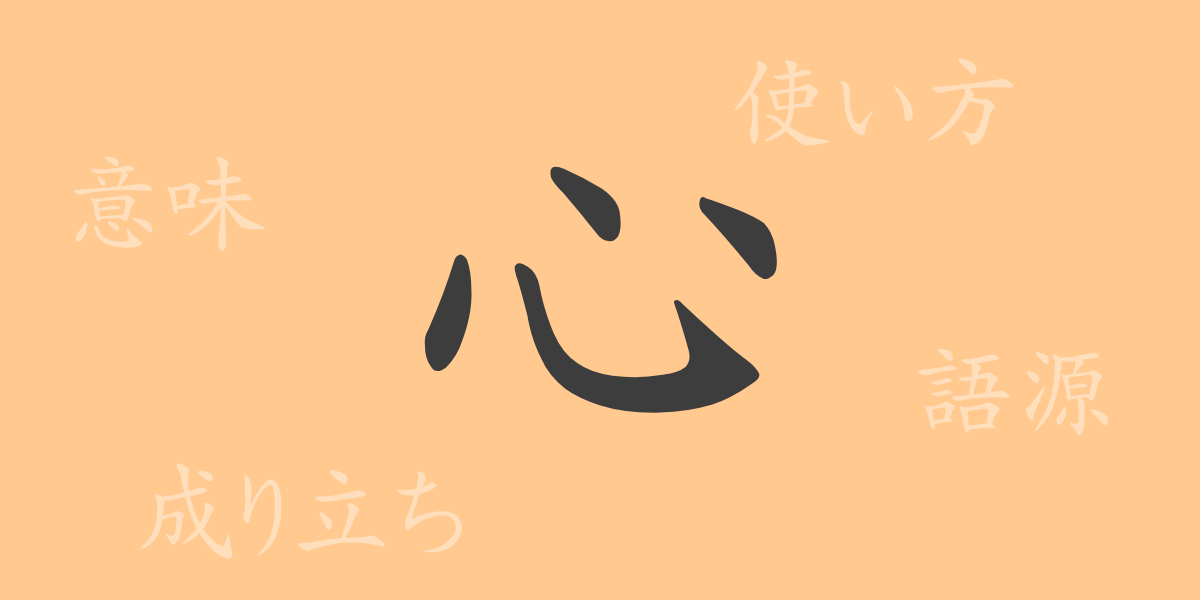The Japanese character ‘心’ transcends mere typography in Japanese culture, symbolizing people’s emotions, thoughts, and spirits, and deeply rooting itself in Japanese life and language. This article delves into the origins, meanings, and usages of the Kanji ‘心’, exploring the phrases and idioms that include it, and uncovering why this single character holds special significance for the Japanese people.
Origins of 心 (しん/こころ)
The Kanji ‘心’ originated from ancient Chinese oracle bone script, initially depicting the shape of a heart, which primarily pointed to the physical organ. Over time, as the heart was considered the center of life, this character evolved to embody broader concepts such as emotions and spirit, thereby shifting from a physical representation to encompass abstract meanings like ‘mind’ and ‘spirit’.
Meaning and Usage of 心
In modern Japanese, ‘心’ carries extensive meanings including emotions, will, thought, or spirit. It appears alone or in compound words such as ‘心配’ (worry), ‘心地’ (feeling), and ‘心掛け’ (intention). It also functions as a suffix in adjectival phrases like ‘心強い’ (encouraging) and ‘心細い’ (anxious).
Readings, Stroke Count, and Radical of 心
‘心’ is a fundamental Kanji in Japanese, known for its distinctive readings and structural components:
- Readings: On’yomi ‘シン’, Kun’yomi ‘こころ’
- Stroke Count: 4 strokes
- Radical: ‘心’ itself serves as a radical, known as ‘心部 (しんぶ)’
Phrases, Idioms, and Proverbs Involving 心
Many idioms, phrases, and proverbs including ‘心’ are prevalent in Japanese, each reflecting unique meanings and uses:
- 心機一転(しんきいってん) – Adopting a new mindset for approaching matters
- 心身ともに(しんしんともに) – Both mentally and physically
- 一心不乱(いっしんふらん) – Concentrating intensely on one thing without distraction
- 心がける(こころがける) – To act with a particular consciousness or intention
- 心を込める(こころをこめる) – To engage sincerely and wholeheartedly
- 心に留める(こころにとめる) – To remember or keep in mind
- 心を病む(こころをやむ) – To suffer mentally or be emotionally unstable
- 心から(こころから) – From the bottom of one’s heart, sincerely
Conclusion on 心
The Kanji ‘心’, while simple in form, embodies complex and profound meanings, playing a crucial role in expressing human emotions and thoughts in Japanese. From everyday conversation to literature and proverbs, ‘心’ is an indispensable element in Japanese expression. Through this article, we have gained insights into the versatile aspects of ‘心’ and its importance in Japanese culture.

























